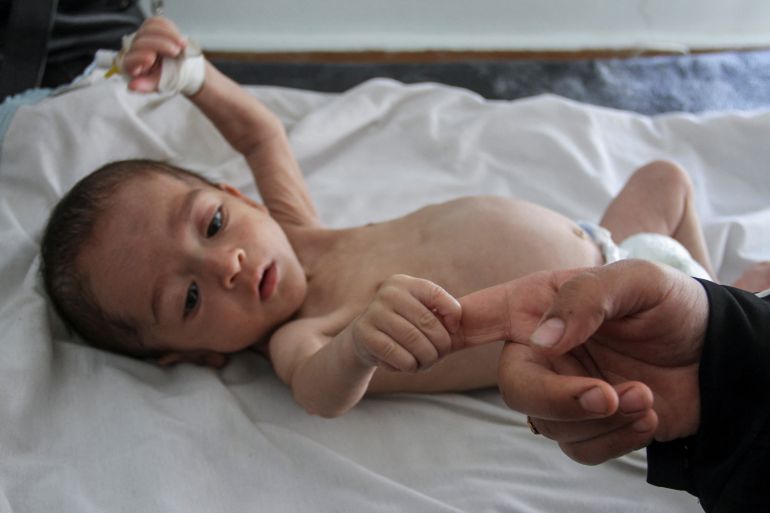The UN’s health agency has issued a warning about the Gaza hunger crisis after international aid organizations demanded that Israel stop preventing humanitarian deliveries.
Aid organizations announced on Thursday that supplies to the besieged enclave are not meeting the population’s nutritional needs, while the UN’s World Food Programme reported that supplies to Gaza are still far short of the 2, 000-ton daily target because only two crossings into Palestinian territory are available.
According to Tedros Adhanom Ghebreyesus, the head of the World Health Organization, “the situation continues to be catastrophic because there is not enough food,” adding that “there is no dent in hunger.”
The UN warned on Wednesday that at least a quarter of Gaza’s population, including 11,500 pregnant women, will be starving, citing “generational” effects from malnutrition.
According to Andrew Saberton, UNFPA’s deputy executive director, 80% of newborns are premature or underweight before October 2023.
Malnutrition will have “generational effects,” he added, “not on the mother, but on the newborn, which will likely lead to ever-more-long-lasting care and issues throughout the baby’s life.”
In Gaza City and its environs in August, the Integrated Food Security Phase Classification (IPC) reported that more than 500 000 people in the Gaza Strip were “catastrophic conditions” when they were declared a “catastrophic condition”.
On October 10, a US-brokered ceasefire became effective. The UN wanted to have about 2, 000 tonnes of humanitarian aid entering every day as part of the ceasefire agreement. Because only two of the Israeli-controlled crossings into Gaza, known as Kerem Shalom and Kissufim in Israel, are operational, according to the WFP, which only allow 750 metric tonnes of food to enter the Gaza Strip each day.
Even two weeks after the ceasefire began, Bahaa Zaqout, the Palestinian NGO’s director of external relations, said, “The situation in the Gaza Strip continues to be catastrophic.”
Zaqout cited instances where commercial trucks allowed in items like seeds and olives while also preventing people from entering items like soda and soda.
He continued, noting that while some fruits and vegetables are imported into Gaza, they are exorbitantly expensive. “Unfortunately, these do not respond to the minimum nutritional values for children, women, and the most vulnerable groups,” he continued.
He claimed that one kilogram (2. 2 pounds) of tomatoes now cost about 15 shekels ($4.50).
On Thursday, 41 aid organizations, including Oxfam and the Norwegian Refugee Council, published an open letter accusing Israel of “arbitrarily” delaying aid deliveries into Gaza, alleging that the Israeli government has consistently blocked their requests to begin humanitarian efforts seriously.
The letter stated that “99 requests by international NGOs to deliver aid to Gaza were rejected while six requests submitted by UN agencies were denied” between October 10 and October 21. “Tents and tarpaulins, blankets, mattresses, food and nutrition supplies, hygiene kits, sanitation supplies, assistive devices, and children’s clothing are all items that Israeli authorities should not restrict during the ceasefire,” he said.
The International Court of Justice (ICJ) ruled on Wednesday that Israel must meet the “basic needs” of Gaza’s population. Israel allegedly broke international law by refusing to provide aid to Gaza between March and May, according to Palestinian ICJ lawyers and Palestinian ICJ representatives in April.
Since then, humanitarian organizations have requested more aid from Israel and demand that it be given in addition.
Aid organizations stated in an open letter on Thursday that supplies are packaged, staff are trained, and ready to respond on a scale. Access is what we currently require. The terms of the ceasefire agreement and international humanitarian law must be upheld by Israel’s authorities.
Source: Aljazeera

Leave a Reply